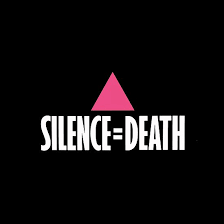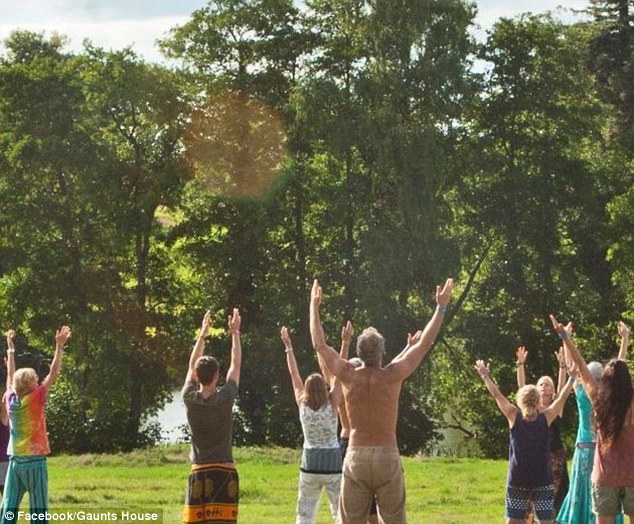
The 1990s
 During the last decade of the 20th century, the United States became the world's sole superpower. It possessed the world's most productive economy and most mighty military. It dominated global trade and banking, and its popular culture was influential across much of the globe. During the 1990s, the US economy grew rapidly due to a sharp fall in interest rates and the price of oil, the growth of new computer and communication technologies, globalization, and the expansion of international trade, finance, and entertainment. The end of the Cold War unleashed violent ethnic, religious, and national conflicts, especially in the Balkans, the Middle East, and Africa. The first important foreign policy crisis of the post-Cold War era involved Panama, which the United States invaded in 1989 to safeguard American lives and to protect the Canal Zone. This was followed in 1990 by Iraq's invasion and occupation of Kuwait, which was reversed by the Gulf War. The breakup of the former Yugoslavia resulted in US intervention in Bosnia and Kosovo.
During the last decade of the 20th century, the United States became the world's sole superpower. It possessed the world's most productive economy and most mighty military. It dominated global trade and banking, and its popular culture was influential across much of the globe. During the 1990s, the US economy grew rapidly due to a sharp fall in interest rates and the price of oil, the growth of new computer and communication technologies, globalization, and the expansion of international trade, finance, and entertainment. The end of the Cold War unleashed violent ethnic, religious, and national conflicts, especially in the Balkans, the Middle East, and Africa. The first important foreign policy crisis of the post-Cold War era involved Panama, which the United States invaded in 1989 to safeguard American lives and to protect the Canal Zone. This was followed in 1990 by Iraq's invasion and occupation of Kuwait, which was reversed by the Gulf War. The breakup of the former Yugoslavia resulted in US intervention in Bosnia and Kosovo.

Bigger and Better
The 1990s was a decade of extremes and contradictions. Americans built bigger and more elaborate homes and drove more expensive automobiles, then worked longer hours to pay for them. Americans spent more, borrowed more, and went more deeply into debt. They drank more coffee, smoked more cigars, and turned gambling into a national pastime. Children struggled to deal with the pressures of the adult world to which they were increasingly exposed, and many were forced to adjust to new step-families. Meanwhile, a disturbing number of adolescent and teenage boys went on deadly shooting rampages that left dozens dead or wounded and a troubled nation asking why. Even as Americans decried the rise in gun violence, guns nevertheless found their way into more households during the 1990s than ever before. Men endured a crisis of masculinity. Gays and lesbians came closer to entering the American mainstream, yet they often faced violent assaults and an antigay backlash.

Mass Shootings
Mass shootings, many of them involving children or teenagers, dominated American headlines during the decade. There was a growing sense among many Americans that no one was safe from unpredictable gun violence. Yet the attitudes of Americans toward guns remained ambivalent. The percentage of US households owning guns increased while membership in the National Rifle Association (NRA) declined. Legislation such as the Brady Handgun Violence Prevention Act (1993) was offset by the passage of right-to-carry gun laws in more than thirty states.

Gender Equality
The male crisis and the crusade for gay rights also made headlines. Pressured to be masculine in a culture that no longer valued traditional codes of manhood, many heterosexual men felt troubled and lost. Trying to create a movement to reclaim their masculinity, some men went into the woods to chant and to beat on drums, hoping to resurrect the "wild man" within. The movement soon died out. On the other hand, homosexuals led a movement that made their presence felt in all aspects of public life during the 1990s. They even inserted themselves into the mainstream of US politics. Nevertheless, although the majority of Americans surveyed in 1998 believed that homosexual relations were acceptable, violence and a legal backlash against gay rights occurred throughout the decade.

New Age Spirituality
In a time of extremes and uncertainties, Americans sought out spiritual direction, not only returning to mainstream churches but also exploring an array of spiritual alternatives. New Age spiritualism waned and prospered during the 1990s. Although the numbers of Americans willing to identify themselves as New Age spiritualists declined, the popularity of such gurus as Deepak Chopra suggested that spiritualism continued to assert an influence behind the scenes in American life. Indeed, spiritualism surfaced in some unlikely settings. The phenomenon of "corporate spiritualism" transformed the workplace in many companies, large and small. It motivated employees by emphasizing their individuality, their obligations to their employer, and their responsibility for their own happiness and fulfillment.
An event that was both political and spiritual was the Million Man March. Organized by Louis Farrakhan, the leader of the Nation of Islam, the march drew almost one million African American men to the Mall in Washington, D.C., for a day filled with speeches and sermons extolling the virtues of family and community responsibility. The peaceful, uplifting event was the largest assembly of African Americans in US history.
Americans relaxed many standards during the 1990s, including those regarding fashion. Offices across the country adopted casual dress codes. Although employers at first allowed dress-down Fridays or casual days during summers only, many companies adopted casual dress as a full-time policy by the end of the decade. In addition, young people, influenced by a new style of rock music known as grunge, started to wear loose-fitting jeans, old flannel shirts, and T-shirts. Some fashion designers incorporated these thrift store influences into their seasonal lines. Others catered to the growing hip-hop fashion movement that would come to dominate young America by the end of the decade.
Events
| 1990 |
- Iraq invades Kuwait.
- With the fall of the Berlin Wall, Germany is reunified.
- A McDonald’s restaurant opens in Moscow.
- Foundation of Queer Nation, New York City.
- Nelson Mandela is released from prison.
|
| 1991 |
- Operation Desert Storm is launched to remove Iraqi forces from Kuwait.
- The Soviet Union dissolves.
- Birth of World Wide Web.
- The Hubble Telescope is launched.
- Anita Hill accuses Clarence Thomas of sexual harassment in Supreme Court hearings.
|
| 1992 |
- President Bush and Russian Premier Boris Yeltsin sign a joint understanding, beginning the process of post-Cold War arms reduction.
- William J Clinton is inaugurated the 42nd president.
- Los Angelese Police Department officers accused of—and filmed—beating motorist Rodney King are acquitted. This verdict sparks riots in Los Anglese.
- Opening of Mall of America, Minnesota, America’s largest shopping mall.
- Cormac McCarthy is awarded the National Book Award for Fiction for All the Pretty Horses.
|
| 1993 |
- A car bomb detonated underneath World Trade Center in New York City.
- President Clinton announces a “don’t ask, don’t tell” policy on gays in the military.
- Eighteen US soldiers die in the "Black Hawk Down" incident in Mogadishu, Somalia.
- An FBI siege of the Branch Davidian cult complex at Waco, TX ends in a fire, killing David Koresh and 81 followers.
- The first “spam” message is sent by email.
- Toni Morrison is awarded the Nobel Prize in Literature.
|
| 1994 |
- The North American Free Trade Agreement (NAFTA) creates a free trade zone among Canada, the US, and Mexico.
- 7,000 Tutsis are slaughtered by Hutu in a soccer stadium in Kibuye, Rwanda, part of the Rwandan Genocide.
- Richard Herrnstein and Charles Murray’s book The Bell Curve incites controversy over the relationship between race and intelligence.
- The first genetically engineered tomatoes become available in the US, and the use and sale of GM Foods is approved.
|
| 1995 |
- The World Trade Organization is founded.
- Domestic terrorists Timothy McVeigh and Terry Nichols bomb the Alfred Murrah Building in Oklahoma City, killing 168 and injuring over 600
- O. J. Simpson is tried for the murders of Nicole Brown Simpson and Ron Goldman.
- Louis Farrakhan calls for and leads the Million Man March, a large gathering of African American men on and around the National Mall. It is designed to win politicians' attention for urban and minority issues.
- Netscape Communications goes public, marking the beginning of the dotcom boom.
|
| 1996 |
- Google is founded by Larry Page and Sergey Brin.
- Proposition 209 (the “California Civil Rights Initiative”) is passed, marking the beginning of legal challenges to affirmative action programs in state institutions.
- Dolly the Sheep is the first mammal to be successfully cloned.
- The Unabomber, Ted Kazinsky, is arrested.
- Clinton is reelected President.
- Osama bin Laden issues a message entitled "A declaration of war against the Americans occupying the land of the two holy places."
|
| 1997 |
- Heaven's Gate cult members commit mass suicide in California
- The Mars Pathfinder lands on Mars.
- President Clinton issues an apology to the victims of the Tuskegee syphilis experiment (conducted from 1932 to 1972).
- The television ratings system debuts on cable stations and broadcast networks.
- Scientists announce the first human stem cells to be cultured in a laboratory using tissue taken from aborted human embryos.
|
| 1998 |
- Al-Qaeda detonates truck bombs outside the US embassies in Kenya and Tanzania.
- The Clinton-Lewinsky scandal leads to the impeachment of the President.
- The FDA approves Viagra for treatment of erectile dysfunction.
- Vice-President Al Gore signs the Kyoto Protocol on climate change. It is not ratified by the Senate.
- DNA tests suggest that Thomas Jefferson fathered a child with slave Sally Hemings.
|
| 1999 |
- The impeachment trial of President Clinton results in acquittal.
- World population tops six billion.
- NATO begins air strikes against Serbia to prevent “ethnic cleansing” in Kosovo.
- Protests at WTO talks in Seattle.
- The Age of Mass Shootings in the US begins, as two students at Columbine High School go on shooting spree, killing 15.
|
Back to Post-WWII US Culture





